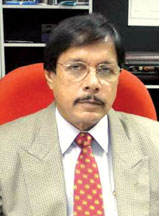CNCI hails 2011 budget
by Gamini WARUSHAMANA
The Ceylon National Chamber of Industries (CNCI) said that the 2011
Budget emanates a message towards accelerated economic development with
emphasis on continued infrastructure development, domestic production
and tourism.
The Chairman of the CNCI, Sunil Liyanage said that the move towards
reducing the budget deficit to low levels provides a conducive
environment for businesses. Steps taken towards simplification of taxes
are a request from the business community and CNCI stressed this in its
submissions to the Presidential Tax Commission.
 |
|
Sunil Liyanage |
What is required at the beginning of a new chapter in the economic
development of the country is a firm assurance from the Government that
this will be the direction in which the Government will move in the
years to come and the investors could confidently make long term
investments, Liyanage said.
A series of changes in the field of taxation such as removal of
Turnover Tax, SRL and Debit Tax, removal of the 85% limitation of the
input VAT set off, reduction of NBT to 2%, accelerated capital allowance
on machinery to 331/3, double deduction on R & D, reduction of Income
tax to 28 % and for exporters to 12 % will create a positive impact on
the economy.
We also welcome further relief given to SMEs. However, we are
concerned about the proposal to increase the electricity tariff by 8
percent. Prevailing tariff is uncompetitive and to increase it by 8
percent, to make the CEB profitable is going to affect the viability of
so many manufacturers especially high energy consumers such as
porcelain, tiles and plastics, Liyanage said.
CNCI said that the tariff for the manufacturing sector should be on
par with that of other competing countries.
Commenting on the proposed private sector pension scheme Liyanage
said “It is our understanding that the scheme has looked into long term
viability. However, there are some concerns among the employees and the
businesses too.
Businesses will not only have to pay out another two percent for the
pension scheme but there are proposals to take over the gratuity funds
in the businesses which will impact the cash flow of the businesses”.
Another concern that the Chambers have been canvassing is to reduce
the work of the businesses by unifying the payment scheme of the EPF and
the ETF. CNCI hopes that the introduction of the Pension Scheme will not
cause additional work. Thus the proposed pension scheme should be
implemented with the agreement of all three stake holders the trade
unions, employers and the government.
|

